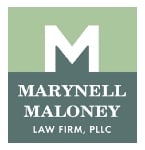Nursing Home Abuse And Neglect FAQ
When your loved one enters a nursing home or assisted living facility to be cared for by professionals, you expect he or she will receive the appropriate care and treatment for the duration of the stay. You never imagine that you could actually be putting your loved one in harm’s way. Many families spend significant amounts of time, effort and money to ensure their loved ones will be entrusted to compassionate and diligent professionals but, all too often, their trust in nursing homes and assisted living facilities is violated. Therefore, it’s important to be aware of the signs of nursing home injury, negligence, abuse and exploitation.
What are the signs?
Some of the signs of Nursing Home Injury/Negligence/Abuse/Neglect/Exploitation are:
- Bedsores (also known as pressure ulcers or decubitus ulcers) — especially advanced wounds
- Frozen joints may indicate a failure to turn residents in their beds or move residents appropriately (which also may lead to pressure ulcers)
- Falls resulting from lack of adequate precautions or assistance and a general failure to take adequate precautions that results in injury to the resident
- Dropping of resident by nursing home staff
- Skin rashes, particularly when attended by urine and/or feces odor
- Failure to take residents to the toilet and/or a lack of attention to a resident’s personal hygiene (leaving them in soiled garments or beds)
- Failure to recognize or treat heart attack, stroke, or other serious medical condition and failure to transport resident to hospital for treatment in the appropriate time frame
- Significant weight loss may indicate a variety of problems, including failure to provide proper nutrition
- Dehydration may indicate a failure to provide adequate hydration
- Skin tears, bruises, lesions, burns, bone fractures, sprains or contusions, particularly those that appear with no explanation, may indicate neglect or a pattern of physical abuse
- Failure to respond to a resident’s call light in a timely fashion
- Unjustified chemical or physical restraints
- Over-medication or failure to give medication resulting in harm to the resident
- Evidence of slapping or other physical abuse, emotional or verbal abuse
- Changes in mental status, depression or isolation, unexplained mood shifts, disorientation and confusion
- Fear and anxiety, particularly if accompanied by a reluctance to communicate the reason for the fear may indicate physical or sexual abuse
- Torn, stained or bloody undergarments and/or unexplained sexually transmitted diseases may indicate sexual abuse and/or rape
- Refusal of staff to allow visitors or to allow visitors to be alone with resident may indicate abuse by staff
- Missing possessions, mysterious bank account withdrawals, or changes in financial documents can be a sign of financial abuse and/or theft
- Retaliation for filing a complaint
Should I bring a lawsuit for nursing home negligence?
Oftentimes, family members of nursing home residents provide the only protection a nursing home resident may have. Family members cannot take a resident’s care for granted or assume that adequate protections are in place.
Abuse and neglect in nursing homes may manifest in physical harm, sexual abuse, financial abuse, mental and psychological damage, and even the death of your loved one. If you are concerned that your loved one is being victimized by a caregiver or is suffering from neglect or abuse in a nursing home, please do not hesitate to call us. We can help you determine whether a lawsuit is the appropriate course of action to protect your loved one and put a stop to any abuse or neglect that may be happening.
How do I report nursing home abuse to the state?
If you wish to report nursing home abuse to the state, you can contact Texas Health and Human Services.
Why does nursing home abuse/neglect occur?
- Understaffing in nursing facilities in attempts to enhance the bottom line;
- Staff may be poorly qualified, undertrained, overworked and/or underpaid;
- Nursing home residents have a demanding array of daily needs not easily met by under-qualified staff;
- Nursing home neglect and abuse victims often have difficulties in communicating the extent and occurrence of their neglect or abuse due to their vulnerable state.
Contact Us
If you have questions or concerns about protecting a vulnerable loved one, please call us in San Antonio at 210-446-0035 or complete our contact form. Our attorneys represent individuals and families who believe nursing home neglect or abuse has harmed their loved ones.
We do not collect attorneys’ fees unless we successfully obtain compensation for you.
